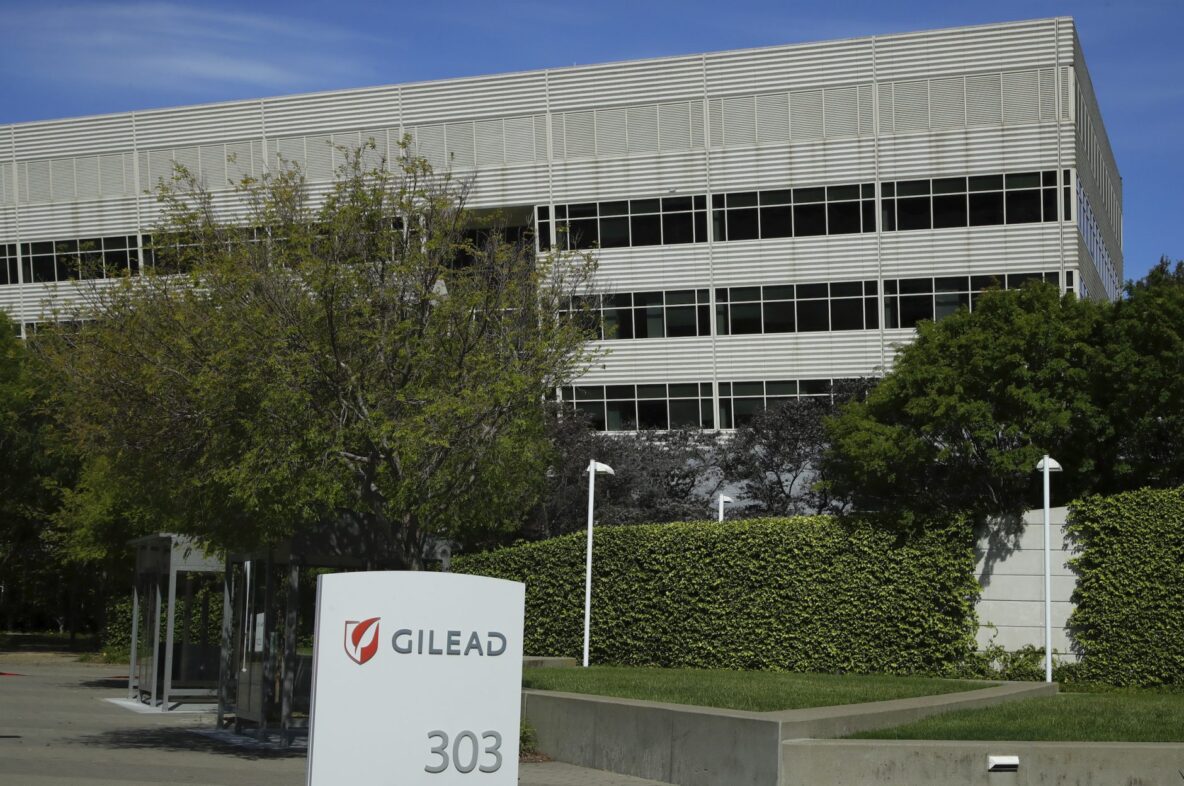The plaintiffs say they suffered unnecessary kidney and bone damage from taking one of Gilead’s drugs, which could have swapped out an ingredient for a safer alternative.
NATALIE HANSON / September 29, 2023

OAKLAND, Calif. (CN) — The biopharmaceutical drug giant Gilead Sciences Inc. must face claims in a federal lawsuit that the company sold defective drugs to people living with HIV and AIDS, a judge ruled Friday.
U.S. District Judge Jon Tigar preserved some claims against Gilead, finding the plaintiffs plausibly claimed the drugs were defectively designed, and the company had alternative designs on hand. However, the Obama-appointed judge threw out the plaintiffs’ strict liability and defect design claims in some states, as well as counts of post-approval failure to warn, implied warranty breach and consumer protection violations.
He also denied pieces of the plaintiffs’ fraud claims to do with inadequate labeling and claims that Gilead omitted information.
A trial is scheduled for April 2024.
A group of people who live with HIV and AIDS claim they suffered unnecessary kidney and bone damage from taking one of Gilead’s drugs, which could have swapped out an ingredient for a safer alternative.
Tigar granted summary judgment to Gilead on some defective design claims, since five states do not recognize the claims for prescription drugs based on strict liability.
The remaining defective design claims are still standing.
Gilead didn’t properly warn patients about the side effects of a drug that contained the substance tenofovir disoproxil fumarate, the plaintiffs say, and chose not to develop medication using a reportedly safer ingredient, tenofovir alafenamide fumarate.
Tigar said the drug company didn’t cite an appropriate authority to show how a plaintiff cannot withstand summary judgment on a defective design claim when presenting evidence of a reasonable alternative design.
“The court is not persuaded by Gilead’s argument that presenting evidence that a reasonable alternative design existed is insufficient to create a disputed fact over whether a design was defective,” Tigar wrote in the 21-page order.
As to the claim of negligence, the judge rejected Gilead’s argument that it cannot be held liable, and asked the parties to meet and discuss further.
The judge shot down Gilead’s argument that the plaintiffs’ pre-approval and post-approval failure to warn claims are preempted, saying the company didn’t cite the appropriate law showing the U.S. Food and Drug Administration’s approval establishes that a drug manufacturer has complied with its duty to provide adequate warnings.
In fact, the Supreme Court called it a “fundamental misunderstanding” to maintain the position “that the FDA, rather than the manufacturer, bears primary responsibility for drug labeling.”
The high court decided that whether “clear evidence” of FDA disapproval exists is a question of law — but “seemingly left open the question whether what constitutes ‘newly acquired information’ is a question or law or a question of fact,” Tigar said.
The judge also said that plaintiffs had to prove they had new information about Gilead’s practices and labeling, but had not explained how the information differed from what was already presented to the FDA in 40 periodic post-marketing safety reports.
In depositions, the plaintiffs’ own experts said they had no reason to believe Gilead withheld adverse event reports or other information from the FDA.
“That makes this case unlike those relied on by plaintiffs, where there was evidence of analyses or other evidence that the manufacturer did not share with the FDA,” Tigar said. He added that the plaintiffs’ failure to meet their burden affects the basis of their post-approval failure to warn claims, and granted summary judgment to Gilead on those claims.
The judge granted in turn Gilead’s motion for judgment on the implied warranty and consumer protection claims, since they rested on the moot failure to warn claims.
Tigar did not rule on Gilead’s evidentiary objections, since he didn’t need to address disputed evidence in order to rule on the summary judgment motion.
A spokesperson for Gilead said in an email that the medicines in question retain the FDA’s approval for use as treatment and prevention options for people living with HIV.
“Today, the court’s decision dismissed many of the plaintiffs’ claims, and we will continue to defend ourselves against these meritless claims and allegations, which have been narrowed as a result of this ruling,” the company said in a statement.
Robert Hilliard, an attorney for the plaintiffs, said in an email Friday that his clients were pleased the judge had rejected Gilead’s attempt to absolve itself of liability before facing a jury.
“By keeping the safer TAF out of patient’s hands and only providing the less safe, more toxic TDF, Gilead shows it would rather harm patients than harm TDF sales,” Hilliard said. “This conduct is callousness defined.”
In 2019, Tigar rejected Gilead’s bid to dismiss all claims, though he narrowed the scope of some claims. The court consolidated many of the individual cases, which cover more than 3,000 plaintiffs from the District of Columbia and every state except for California and Delaware.
The parties return to court in November.
On Monday, another federal judge approved an agreement for Gilead to pay $246.75 million to customers to settle claims that it charged “exorbitant” prices for critical HIV drugs while limiting the ability of any generic treatment to come to the market in a “pay to delay” scheme.

